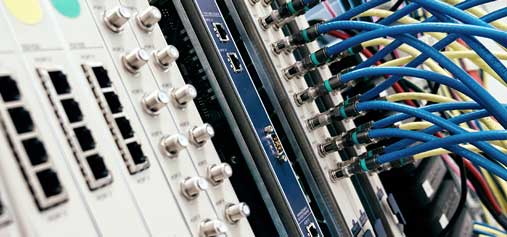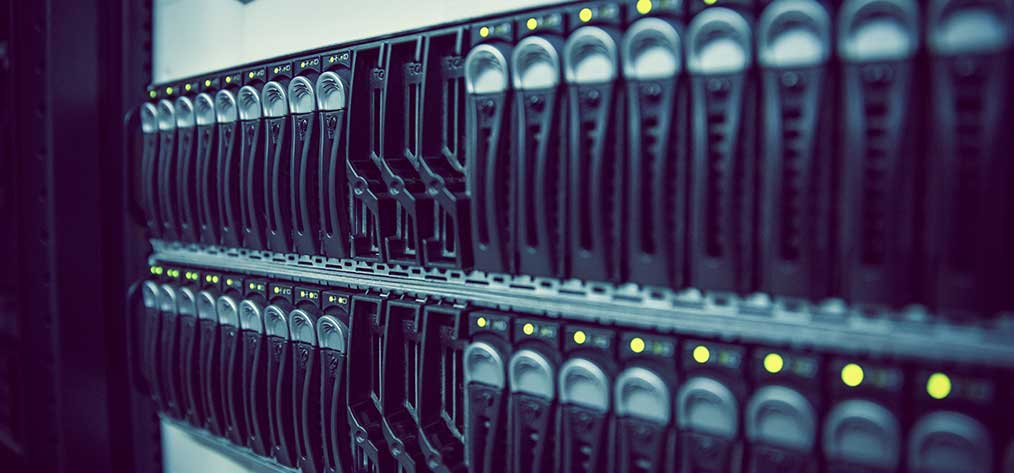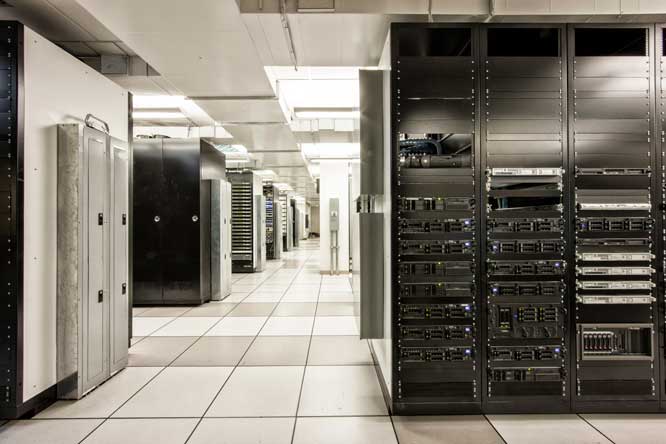Data Centre Cooling Auckland
Commercial HVAC Solutions and Services in Auckland, NZ.

Data centre cooling is an important factor in keeping systems running smoothly and efficiently. It requires careful consideration to ensure it’s done right, making commercial air conditioning a sound choice for many data centres. Commercial air conditioners are designed to maintain the optimal temperature within the facility quickly and easily.
The size of the space and the type of equipment being stored will determine which system best meets your needs. The key advantages of using commercial AC units include low energy costs, minimal maintenance requirements, increased safety standards, improved reliability, cost-effectiveness, and environmental sustainability. With these benefits in mind, it makes sense why so many organizations now turn to commercial air conditioning when looking for reliable data centre cooling solutions.
Commercial air conditioning provides numerous advantages that make it an ideal solution for data centre owners wanting reliable performance while also reducing their operational costs over time.
GET A QUICK QUOTE!
Get a FAST Response

Benefits Of Commercial Air Conditioning For Data Centres
Commercial air conditioning is a great solution for data centre cooling. By using these systems, businesses can effectively manage the temperature of their facility and keep it within optimal ranges to ensure the success of their operations. Moreover, they also benefit from improved energy efficiency which helps control costs.
Furthermore, commercial air conditioners are reliable and offer many features that make them ideal for data center use. They come with built-in thermostats to adjust temperatures as needed, and generate clean air by removing contaminants from the environment like dust particles and moisture. Additionally, advanced filters help improve the indoor air quality further while reducing noise levels too. As such, this system offers numerous advantages in terms of performance and cost savings over time.
It’s clear that commercial air conditioning provides several benefits when it comes to keeping data centres at their best – but what types of cooling solutions should be used?
Types Of Cooling Systems Used In Data Centres
When it comes to data centre cooling, there are many different types of commercial air conditioning systems available. Each system has its own advantages and disadvantages, so let’s look at some of the most commonly used options:
1) Chilled water systems: These are closed-loop systems that use pipes filled with a refrigerant liquid to transfer heat away from the IT equipment housed in the data center.
2) Air handling units (AHUs): This type of mechanical ventilation system uses filters and fans to move hot air out of the facility while bringing cool air back in. 3) In-row cooling systems: These direct airflow solutions have become increasingly popular due to their energy efficiency and flexibility. 4) Rack enclosures: A rack enclosure is an enclosed cabinet that houses all of an organization’s IT infrastructure components within one unit, allowing for more efficient temperature control.
No matter which type of system you choose, there are several important factors to consider when selecting a cooling solution for your data center. It is essential to understand how much space will be needed for installation as well as how efficiently each option can regulate temperatures inside the facility. Additionally, scalability should be taken into account since not all technologies can accommodate additional capacity if needed down the line. Finally, cost must also be considered when weighing up potential choices for data centre cooling.
Factors To Consider When Choosing A System For Data Centre Cooling
Choosing the right system for data centre cooling is a complex task, with many different factors that must be taken into consideration. The environment of the data centre will determine which type of system best meets its needs. This includes things like temperature, size and location, as well as any specific requirements such as energy efficiency or noise reduction.
The cost of installation and maintenance should also be factored in when selecting a system. It’s important to consider whether it’ll need to be replaced after a certain period of time due to wear and tear, or if there are warranties available on parts and services that can help reduce future costs. Additionally, you’ll want to weigh up the operational benefits of each type of system against their running costs over time – some may have higher upfront costs but lower long-term expenses.
Considering all these elements ensures that you’re able to select an appropriate cooling solution for your data centre’s unique needs. Next we’ll look at the advantages air conditioning systems offer for this purpose.

Advantages Of Air Conditioning Systems For Data Centre Cooling
When it comes to cooling a data centre, there are many options, but one of the most popular is air conditioning systems. Air conditioning offers numerous advantages that make it an attractive option for facilities managers.
For starters, air conditioners can be tailored and adjusted to meet the specific temperature needs of a particular space. This allows users to closely monitor and control their environment, helping them avoid having too much or too little cooling power in any given area. Additionally, since they’re relatively easy to install and maintain compared to other types of coolers, such as evaporative coolers or chillers, businesses can save on initial installation costs and labor expenses over time. Furthermore, newer models provide better efficiency ratings than older units – meaning lower energy bills each month. Plus, ACs don’t require large amounts of water like other methods do; this can help companies reduce their environmental impact while keeping their operating costs low.
Overall then, air conditioning systems offer plenty of benefits when it comes to cooling a data centre efficiently. However, just as with any technology solution there are also some challenges associated with using these systems that need careful consideration before committing to them.
Challenges Of Cooling Data Centres With Air Conditioning
When it comes to cooling data centres, air conditioning systems can be a great choice in the right circumstances. But there are also certain challenges that come along with using AC for this purpose.
The first challenge is energy efficiency. Data centre cooling requires large amounts of electricity, and while AC units may have good ratings on their own, they often require additional power-hungry components such as pumps and fans. This means that there’s potential for an inefficient setup if not carefully monitored and maintained. Additionally, since these components tend to run constantly, replacement costs will likely accumulate over time unless preventive maintenance strategies are implemented.
Another significant challenge is environmental impact. Air conditioning systems use refrigerants which can cause harm to the atmosphere if released into the environment; therefore proper disposal methods must be followed when disposing of old or damaged equipment. Furthermore, many modern AC units include features designed to reduce noise pollution and improve airflow within the data centre, but these features can still pose a risk if not properly managed due to potential safety hazards from airborne particles or other pollutants entering the facility.
Ultimately, understanding both advantages and challenges associated with using air conditioners for data centre cooling is essential before making any decision about implementing them in your organization’s infrastructure. By doing so you’ll be better equipped to determine whether commercial air conditioning Auckland services are suitable for meeting your needs or not.
How Commercial Air Conditioning Auckland Can Help With Data Centre Cooling
Using commercial air conditioning services in Auckland can be a great asset for data centre cooling. Air conditioning solutions are designed to ensure the temperature and humidity of servers remain at an optimal level, so as to prevent any damage due to overheating. It also reduces energy consumption by ensuring that only the necessary amount of cooling power is used.
Not only does this improve efficiency, it also provides peace of mind knowing you won’t have server issues arising from excessive heat or humidity levels. What’s more, regularly scheduled maintenance ensures your system runs optimally – reducing downtime and saving money in repair costs in the long run. This makes air conditioning a cost-effective way to maintain safe temperatures within the data centre environment.
Commercial air conditioning services can provide a comprehensive solution when it comes to maintaining optimum temperatures inside the data centre. However, regular checkups and servicing are essential if systems are going to remain operational throughout their lifespan without interruption or unexpected breakdowns.
The Importance Of Regular Maintenance For Data Centre Cooling Systems
When it comes to data centre cooling systems, regular maintenance is key. Without the proper upkeep and servicing of these systems, they can quickly become inefficient or even break down completely. This could lead to costly repairs as well as downtime for a business that relies heavily on their IT infrastructure. To avoid this kind of disruption, preventive measures such as regular maintenance are essential.
Maintenance should include inspecting all components of the system – from air handlers to condenser coils – in order to ensure they’re functioning properly. Additionally, replacing filters regularly will help keep dust and other debris from clogging up the system and degrading its performance over time. Performing necessary tune-ups also ensures optimal energy efficiency which helps reduce operational costs. In short, regularly maintaining your data centre cooling system is an effective way to protect both your equipment and wallet in the long run.
Taking steps towards improving energy efficiency is another great way to save money while keeping your data centre cool.
Energy Efficiency Strategies For Data Centre Cooling
It’s no secret that data centre cooling systems require a great deal of energy. In fact, the power requirements can be quite significant when it comes to managing the temperature in such settings. As this is the case, many organisations are looking for ways to improve their energy efficiency in order to save money and become more sustainable.
One way this can be achieved is through investing in efficient equipment like chillers, air conditioners and other climate control solutions. Additionally, optimising airflow within the facility as well as identifying any areas of potential waste or loss can help reduce power consumption significantly. This could include sealing off unused spaces and installing insulation where necessary. Regular maintenance should also not be overlooked in terms of ensuring that all components are running at peak performance levels with minimal energy output required.
Furthermore, employing strategies like turning down heating or cooling during periods of low usage or implementing server virtualisation techniques can further aid in improving overall efficiency. Understanding how much power each system requires on a daily basis will assist in determining which adjustments need to be made for maximum results. With these steps put into place, organisations can enjoy improved energy savings while keeping their data centres functioning safely and efficiently – setting them up for success going forward.
Frequently Asked Questions
What Are The Long-Term Costs Of Maintaining A Commercial Air Conditioning System For Data Centre Cooling?
One of the key considerations when investing in a commercial air conditioning system for data centre cooling is understanding and planning for its long-term costs. It’s important to factor in not only the initial installation cost, but also ongoing maintenance, repairs, and energy bills.
When it comes to maintenance, regular servicing should be done by a professional technician at least once per year. This will help ensure everything works as intended and prevent any major issues or breakdowns occurring due to negligence. Additionally, depending on the age of your AC system, you may need to replace certain parts such as filters and fans over time – this can add up significantly if left unchecked! Lastly, electricity expenses will vary based on how efficiently your AC runs; installing more efficient units with better insulation can reduce running costs substantially.
Overall, taking into account all these potential costs is absolutely essential before committing to an air conditioning system for data centre cooling. Doing so ensures that you get the most value out of your investment while avoiding unexpected surprises down the line.
Are There Any Safety Concerns Associated With Data Centre Cooling Systems?
When it comes to data centre cooling, safety is a key concern. If not properly maintained or managed, the systems have the potential to cause serious harm or damage to people and equipment. As such, there are certain precautions that must be taken when installing and operating a commercial air conditioning system for data centre cooling.
For starters, regular maintenance should be performed on all components of the system in order to ensure they remain safe and reliable. Additionally, proper safety protocols should be followed at all times while working near these systems; this includes wearing protective gear and using caution when handling any potentially hazardous materials. Finally, if possible, look into specialized fire suppression systems designed specifically for use in data centres – as these can provide an extra layer of protection against accidents or fires caused by malfunctioning equipment. All in all, taking steps to guarantee the safety of your data centre cooling system is essential for keeping everyone involved safe and secure.
What Is The Most Energy-Efficient Cooling System For A Data Centre?
When it comes to data centres, cooling systems are essential for keeping equipment from overheating. But not all cooling systems are created equal – energy efficiency is a key factor when choosing the right system. So what is the most energy-efficient option?
The answer will depend on your specific needs and budget. One of the most popular approaches is using commercial air conditioning units in Auckland, as this can provide efficient temperature control without significant upfront costs or ongoing maintenance expenses. However, other solutions such as liquid immersion cooling may be more suitable if you need high performance and maximum reliability. Ultimately, careful consideration should be given to both cost and environmental impact before deciding which solution is best for your data centre’s unique requirements.
What Are The Differences Between Traditional And Emerging Technologies For Data Centre Cooling?
When it comes to cooling a data centre, traditional and emerging technologies offer two distinct approaches. Traditional systems rely heavily on commercial air conditioning units, while more modern solutions are beginning to emerge with the advent of new technology. In this article, we explore the differences between these two methods in order to help you decide what’s right for your own data centre.
Commercial air conditioning has long been used as an effective way to cool down large spaces like data centres. This method is usually cost-effective, but can be inefficient when compared to newer technologies such as evaporative coolers or free cooling systems. With evaporative cooling, outside air is cooled by reducing its temperature through evaporation – a process that requires minimal energy input from the user. Free cooling uses natural elements like wind and water to reduce temperatures without having to expend any energy at all. Both of these technologies have become increasingly popular due to their ability to save costs over time and provide a much higher level of efficiency than traditional models.
Evaporativecooling and free cooling may be better suited for largerdata centres needing greater amounts of power and space; however, even smaller facilities may benefit from using one or both technologies instead of relying solely on commercial AC units. While they require an initial investment upfront, they could potentially pay off in terms of reduced operational costs in the long run – making them well worth considering if you’re looking for an efficient and cost-effective solution for your data centre needs.
How Often Should A Data Centre Cooling System Be Serviced?
When it comes to servicing a data centre cooling system, regular maintenance is essential. This ensures the system runs smoothly and efficiently and can prevent costly repairs or other issues from arising. But how often should such a system be serviced?
The answer depends on several factors, including the type of equipment being used, its age and usage rate, as well as environmental conditions inside the data centre. In general, commercial air conditioning systems for Auckland’s data centres need to be inspected annually. Filters should also be replaced every three months. Additionally, any components that have been in use for more than five years should be checked regularly by an experienced technician who can ensure all parts are functioning correctly.
Regular servicing of a data centre cooling system helps keep it running optimally while avoiding unexpected downtime or performance problems. It’s important to check with your local service provider to find out what their recommendations are so you can take appropriate action when necessary.
